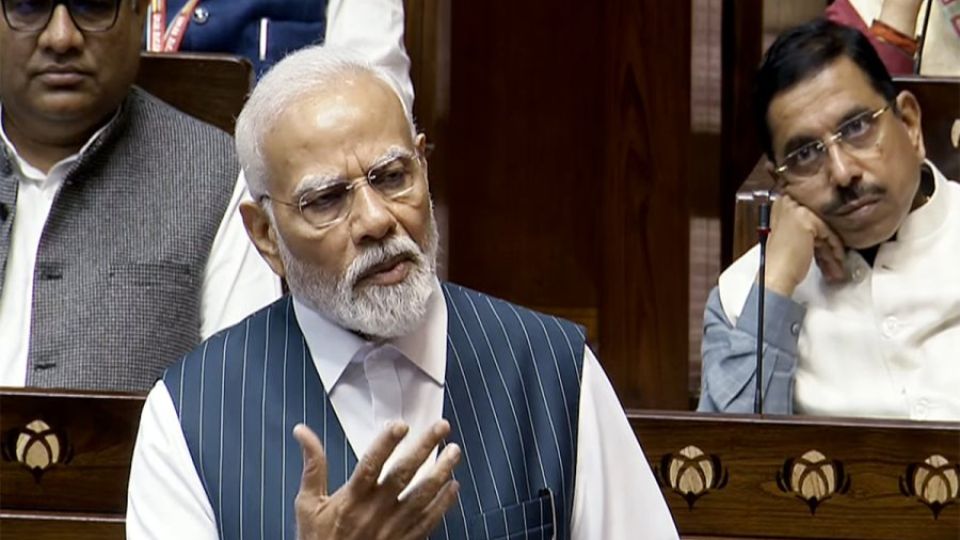September 20, 2023
NEW DELHI – Underlining the importance of current times when “Indian aspirations were at an all-time high in thousand years,” the prime minister, Narendra Modi, said framing new laws and getting rid of outdated laws was the highest responsibility of parliamentarians.
Addressing members of Parliament in the Central Hall of the old Parliament building before the two Houses formally moved to the newbuilding, Modi, on Tuesday, said, “India whose aspirations were chained for a thousand years is not ready to wait now. It wants to move with new aspirations and create new goals.” The PM then added, “We are heading to the new Parliament building with the resolve and determination to transform India into a developed nation.”
Highlighting the contributions of the public representatives in repealing Article 370, he underlined with immense pride that the Constitution provided to the country was now being implemented in Jammu & Kashmir. “Today, Jammu & Kashmir is progressing on the path of peace and development and its people do not wish to let opportunities slip out of their hands anymore,” he remarked.
Recalling his address from Red Fort during this year’s Independence Day, Modi emphasized that the correct time was now, and it highlighted the re-emergence of India with a renewed consciousness. “Bharat is brimming with energy,” Modi emphasized as he noted that this renewed consciousness would enable all citizens to realize their dreams with dedication and hard work.
Referring to India’s ascent into the top five economies, the PM said India was confident to break into the top three world economies. He underlined that it was the expectation of every citizen and the belief of every parliamentarian that all passed laws, discussions and messages relayed from Parliament should encourage Indian aspirations. “Highest priority should be accorded to the roots of Indian aspirations for every reform that is introduced in Parliament,” he said.
The PM then wondered whether a big painting could be painted on a small canvas. He said: ‘’Without expanding the canvas of thinking, we cannot create the grand India of our dreams.’’ Referring to the grand heritage of India, he said, “If our thinking gets linked with this grand heritage, we can paint the painting of that grand India. India will have to work on a big canvas. Time has gone to get entangled in small stuff.”
He underlined the primacy of creating Aatmnirbhar Bharat (self-reliant India). Defying the initial apprehension, the world was talking about India’s “atmanirbhar” (self-reliant) model. In this quest, party politics should not be an obstacle.
Emphasizing the need for India to scale new heights in the manufacturing sector, the PM stressed on the model of “Zero Defect, Zero Effect”, where Indian products should be free from any defects and the manufacturing process must have zero effect on the environment.
Underlining the need to take correct decisions at the correct time, Modi said, “Decision-making cannot be delayed,” and stressed that public representatives could not be bound by political benefits or losses.
“The entire world is looking towards India,” the PM remarked as he noted that India was considered a neutral country during the Cold War, but today it was known as “Vishwa Mitra” (global friend) where it was reaching out to other nations for friendly relations. He mentioned that India was reaping the benefits of its foreign policy as the nation has emerged as a stable supply chain for the world.


